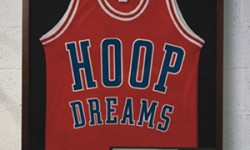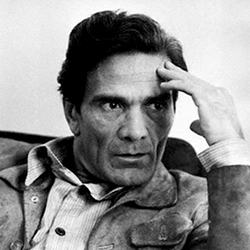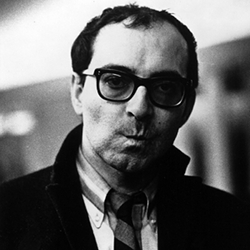
TV Recap: Girls, “Free Snacks” (3.6)
9/2/14, 10pm (EST), HBO
Being a writer is hard. Not just in the obvious sense that writing something worth paying attention to in a world completely suffused with intelligent, original, dynamic voices is a difficult thing to do, but also because breaking into writing is an uphill climb even for those who have the talent to write something interesting. Most people are not writers. Even most people who fancy themselves writers are not writers. And among the people who are writers, only a minute subset are actually doing the kind of writing they dream of doing, the kind of writing they feel like they were meant to do, the kind of writing that makes them seethe with jealousy when they encounter it in other people (who are, obviously, only there through some massive cosmic luck, right?).
“Free Snacks” is about the way we all eventually compromise ourselves to get something that approximates what we want. It is one thing to tell people to dream big, but it is quite another to realistically achieve those big dreams, and most of the time, what we end up with is a version of the thing we want that is kind of, sort of, maybe pretty close to what we are looking for. The harsh truth is that most dreams don’t come true, but while this undeniably rings of cynicism, it doesn’t have to lead immediately to despondency. There are ways to find success and happiness lurking a few rungs beneath the dream job, or a few forks away from your ideal path. Sometimes the choices we make surprise us; sometimes the death of a dream is the birth of an opportunity for something that is eventually satisfying.
Tonight we watch as our heroes make compromises in order to create a facsimile of what they desire that is immediately within their reach. Hannah takes a job at GQ, the only catch being that she is not actually an employee at GQ, and is in fact paid to create advertising content for Neiman Marcus. A sense of shame and guilt permeates her interactions throughout the episode. She does not want to admit to Ray that she is not actually a staff-writer at the magazine. She does not want to admit to her co-workers that she feels all of this a bit beneath her. She does not want to admit to herself that this is not the writing career she is looking for, but it is a writing career.
She also barely notices that she is actually quite good at what she does. Making sort-of obvious, sort-of pithy remarks about her surroundings and clothing them in the veneer of depth is basically the Hannah Horvath (or “Horvatt,” if the sign on her cubicle is to be believed) special, and everyone around her praises her acumen, with the exception of Kevin who pretty much just hates her face. But Hannah doesn’t want to be good at this because she doesn’t want this. She’s clinging to her dream because that dream is her entire self-conception. That dream is everything she knows about herself, and she smartly understands that it is all too easy to take a job like this and wind up five years in, admitting you haven’t written anything outside of work in a year or two.
What she hasn’t yet figured out is that balancing work-writing with pleasure-writing is not as easy as it sounds. After a day of producing content for people who are actually paying you to do so, it can be difficult to return to the projects that you are constantly working on. In the back of your mind, these are active endeavors, goals you are moving towards. But time passes, and though you are loathe to admit it, these projects shift increasingly to the back-burner, and that simmer slowly dims until the work has grown cold. Hannah commits to writing three hours every night, but mere minutes after this declaration, she is fast asleep on the couch, barely stirring to thank Adam for covering her with a blanket.
Adam, too, is making compromises. He snarks about how meaningless a paying job is to his craft (largely, I think, to hide his fear), but the real world encroaches, Hannah reminds him they have to pay rent, and he goes out and gets a call-back. This is a minor note in the episode, mostly played to counter-balance Hannah’s emotions when she returns from work, but it, too, reminds us that these are young people with big dreams who are slowly but surely coming down to Earth.
Shoshanna, always thinking three steps of maturity beyond her actual state of mind, has decided she wants to crash back to Earth as quickly as possible, and seeks out a long term boyfriend not because she has feelings for anyone, but because that seems like the best way to be an adult. The (mostly brain-dead) guy she chooses very quickly proves unsuitable, and by the end of the episode, she is ready to dismiss him once they are done having sex. Shoshanna may think herself light-years beyond her older friends, but her youth grants her one boon she doesn’t notice yet: the ability to keep holding out for the dream. She semi-stalks Ray, idealizing the past the way we all do, but she isn’t ready to settle just yet, not even a little bit. Time, time, time is on her side.
Then there is Marnie, who feels like she has lost everything and so gropes for any semblance of her ideal life. In previous seasons, and even in previous episodes in this season, she has sought out the perfect person, the perfect job, the perfect life. But now she is just searching out any person, because she has no one else to have lunch with. Ray is the perfect counter-point for her at this point in her journey, as he is significantly older and thus much more versed in the at of settling for the adequate and hoping it might become sublime. Ray isn’t even settling on Marnie, not in the way he pretends to be. He sees an opportunity, another person with whom he could connect, and he refuses to shut it down. He doesn’t love Marnie; he isn’t even sure he likes her. But she’s there, and she’s pretty, and she’s interesting to him, and he isn’t just going to sit by and let her go. He’s going to watch reality television, and watch dumplings, and apologize to her for explaining he is not a racist, because he knows that these are the things he needs to do to connect, and he recognizes just how precarious that connection is. Marnie needs him right now because she’s in a bad place. Ray needs her because he has a two-bedroom apartment in that bad place. He knows the terrain. His eyes have adjusted to the darkness. And when he sees another object moving in the night, he isn’t just going to let it slip away.
It is impossible to talk about this tendency in our lives without sounding depressing or, even worse, depressed. But as we grow older, our sense of what is possible understandably narrows, and our dreams and goals shrink. This isn’t because we stop dreaming. That would b a nightmare. That would be death. Instead, what happens is that we grow and learn, and in doing so, we understand more clearly what is possible. There was a time I could have been an astronaut. There was a time I could have been an Olympian. There was a time I could have been the world’s greatest novelist. None of these things is flat-out impossible, of course. They are just increasingly unlikely. Which leaves us with two choices: We can either lament the death of our dreams and curse the world that callously denied us their fruition, or we can see what is in front of us, grasp what opportunities present themselves, and learn that they, too, might be interesting, might be helpful, might be right. We can learn what we are more than capable of doing. We can learn what we are good at. And we can learn to appreciate the ways that resembles what we always wanted. We can see in our shimmering reflections the lives we wanted to have grow blurrier and blurrier as we weigh anchor in whatever position we find ourselves. But then the water grows stiller and we can see ourselves as we are, living the life we are living, doing things that could be better, yes, but could be much worse. And maybe that’s not so bad. And maybe that’s pretty good. And maybe, someday, that’ll be marvelous.
The Roundup
- -“I didn’t recognize your voice. Did you not recognize my voice?” “No, I did. I was just going for a thing there.”
- -“Yeah, I felt like that wasn’t as retweeted as it should have been, so I appreciate the support.”
- -“You’re saying all this is free?” “Yup.” “Even the Sunchips?” “Yup.” “Even the Clif Bars?” “Yup.” “Even the locks, which are disgusting, but very expensive?” “It’s actually Russ and Daughter’s. It’s pretty good.”
- -“Ray really seems to have the respect of his peers on the court.”
- -“Yeah. Fedoras are worse than genocide.”
- -“Well, have you ever seen reality television before?” “I’ve seen Ken Burns’ Jazz documentary about seventeen times. Does that count?” “Absolutely not. In no way. No. It doesn’t.”
- -“This is just beef!” Sweet, naïve Hannah.
- -“I could sell these on Etsy for like twenty bucks each. People are fucking stupid.”
- -“I totally think you can tie your shoes, by the way.”
- -“Not technically dumb. But at, like, a core, spiritual level.”
- -“That didn’t come out the way I wanted it to.” “Which part?” “Most of it. Most of the back-end part of it. Could you please sit down?” “Why?” “Because you have no one else to eat lunch with. And neither do I.”
- -“Do you want me to stop?” “No! There is no need to terminate sex because we’re not meant for each other.”























